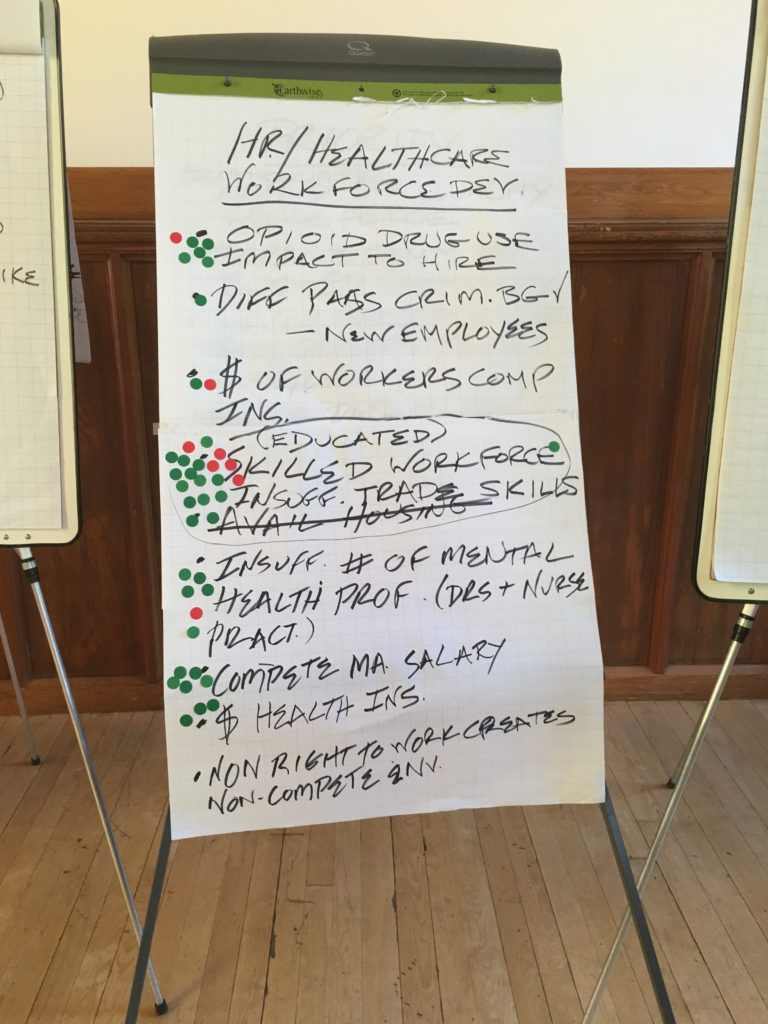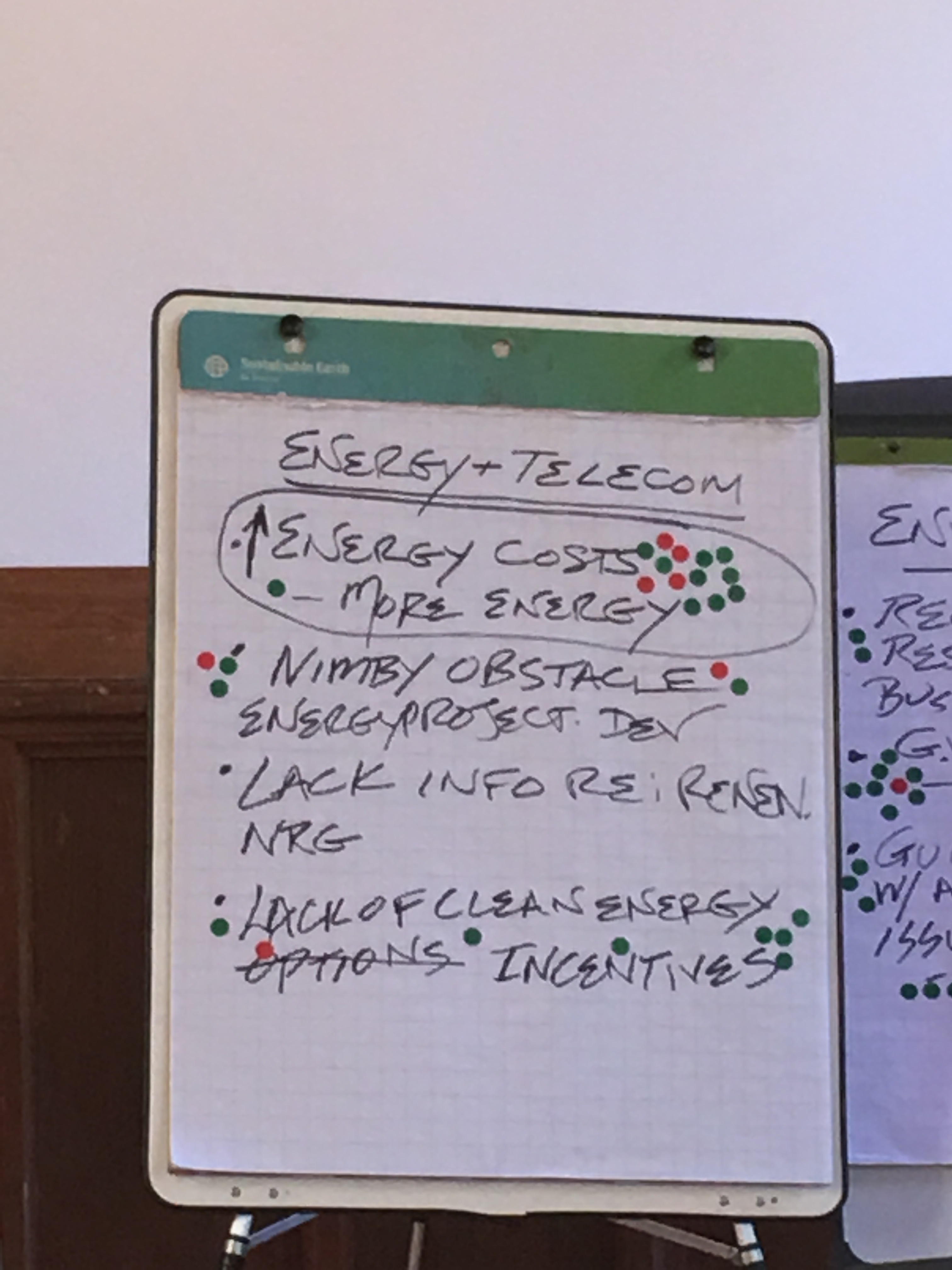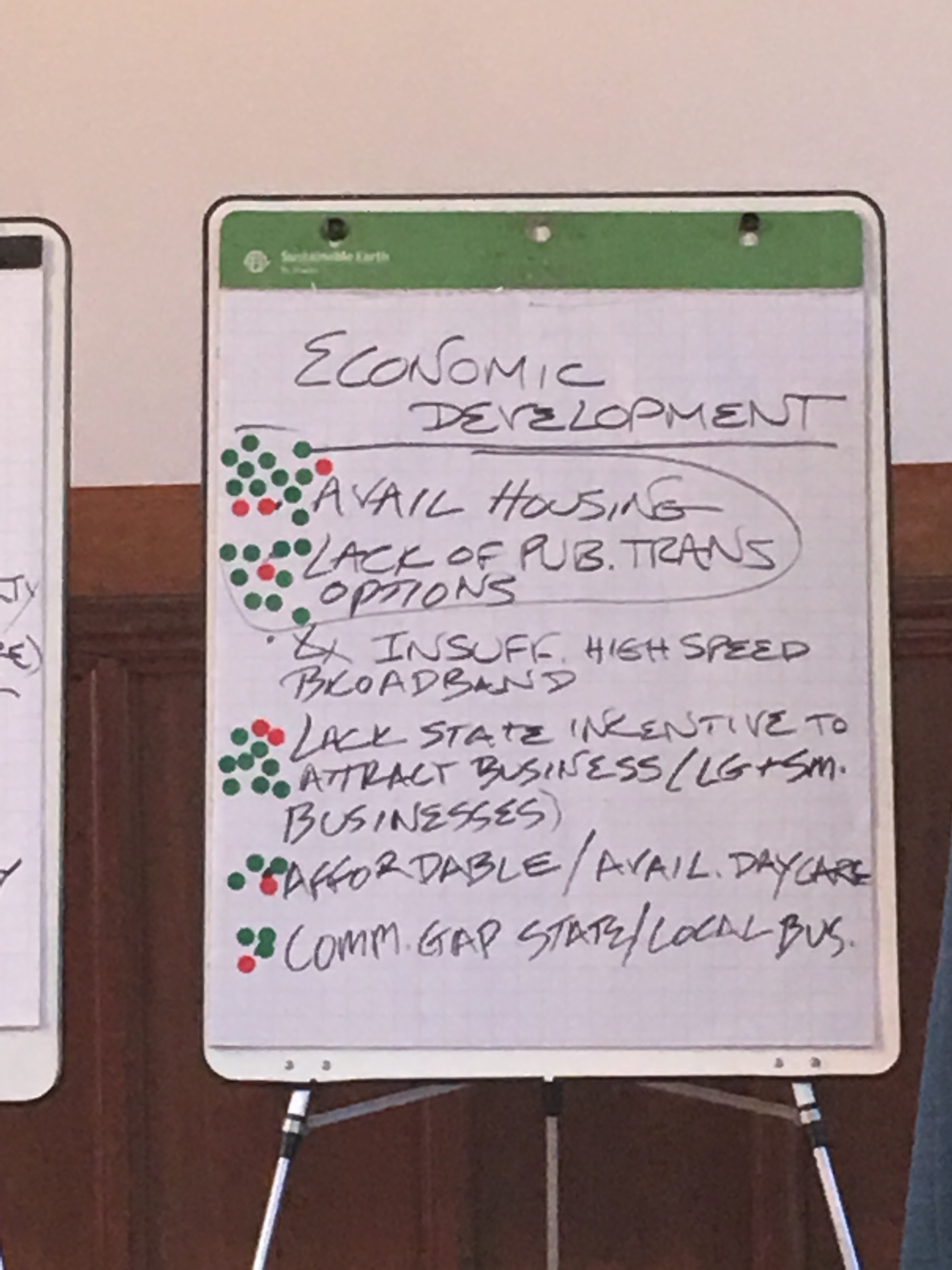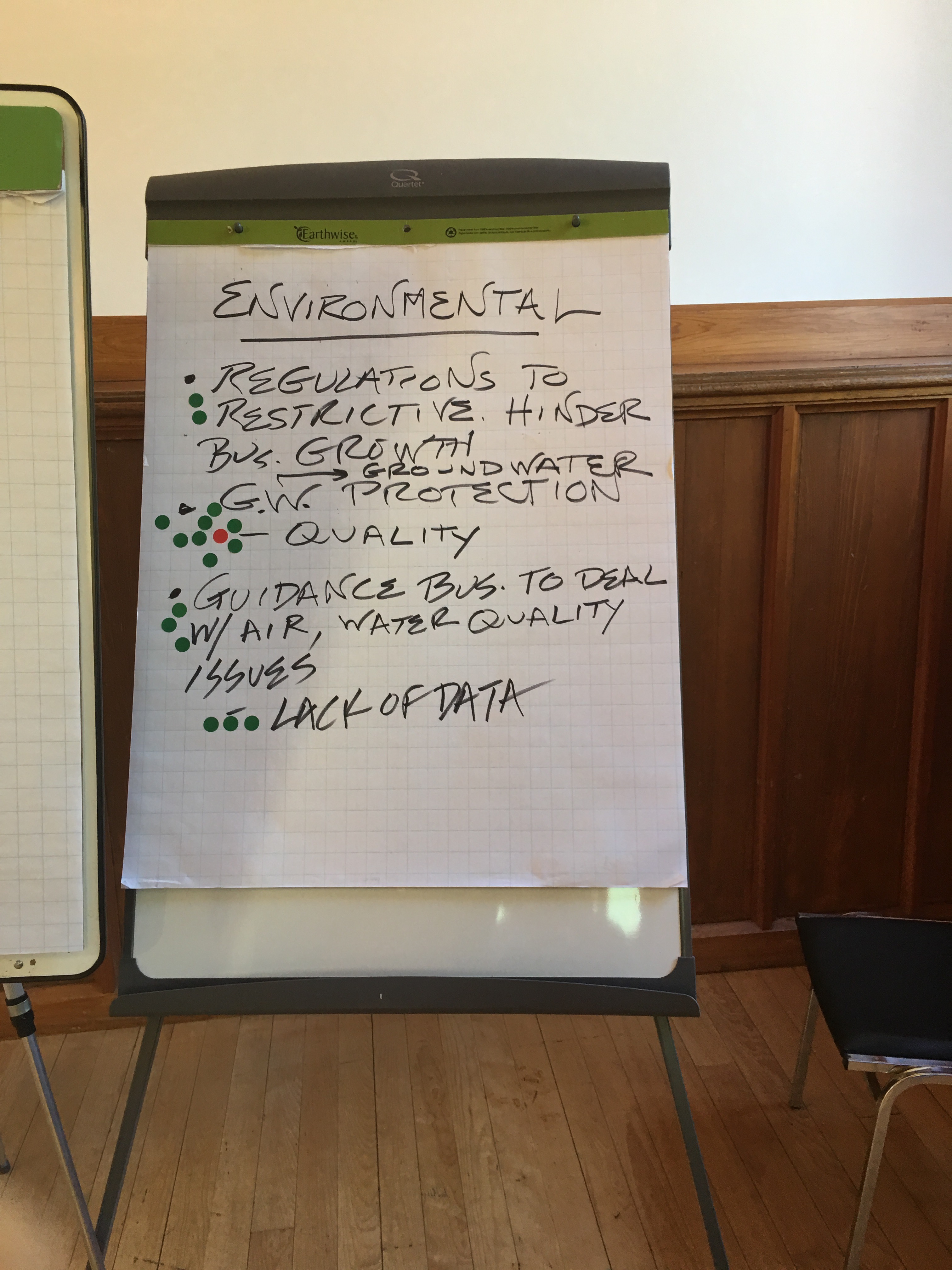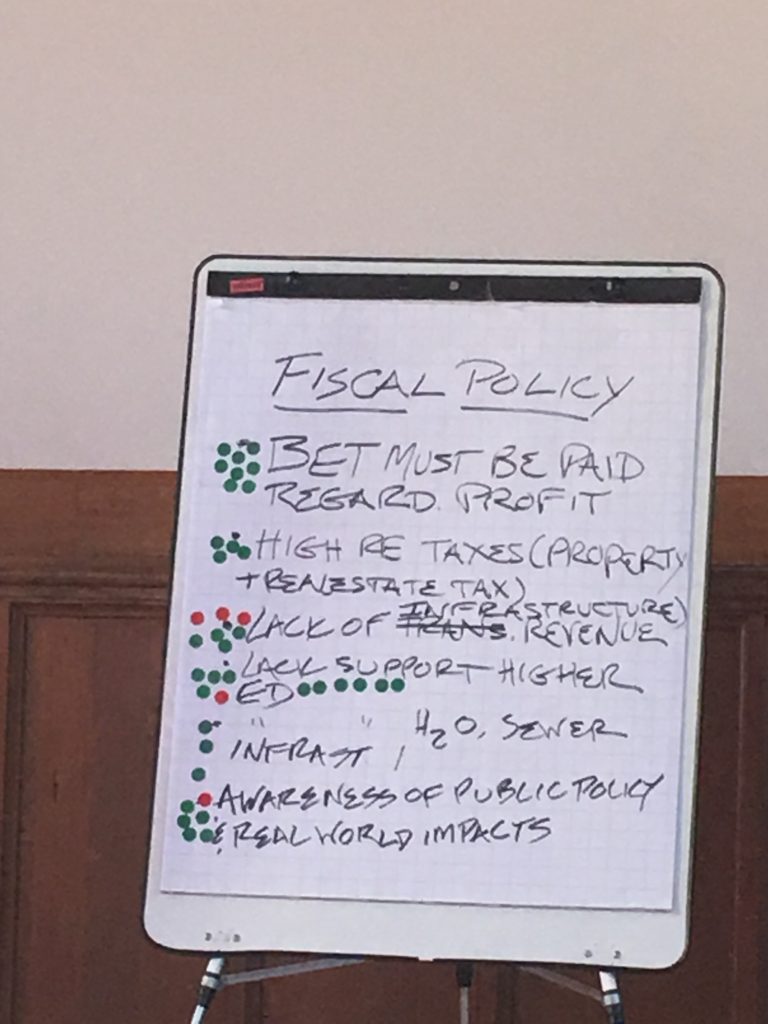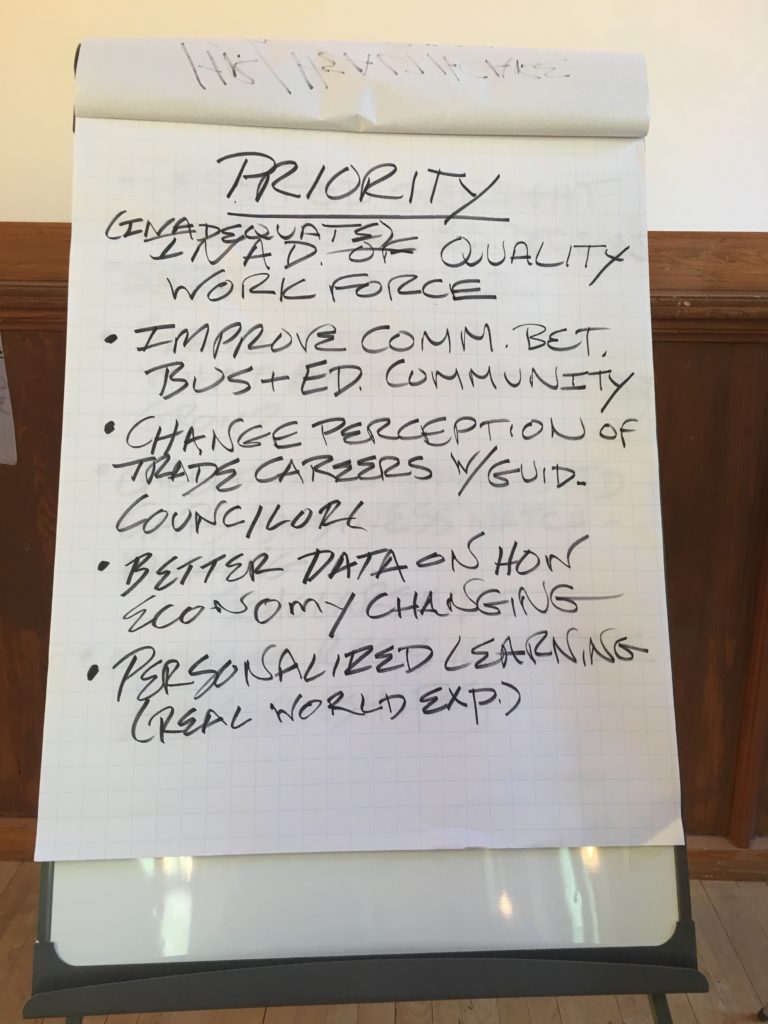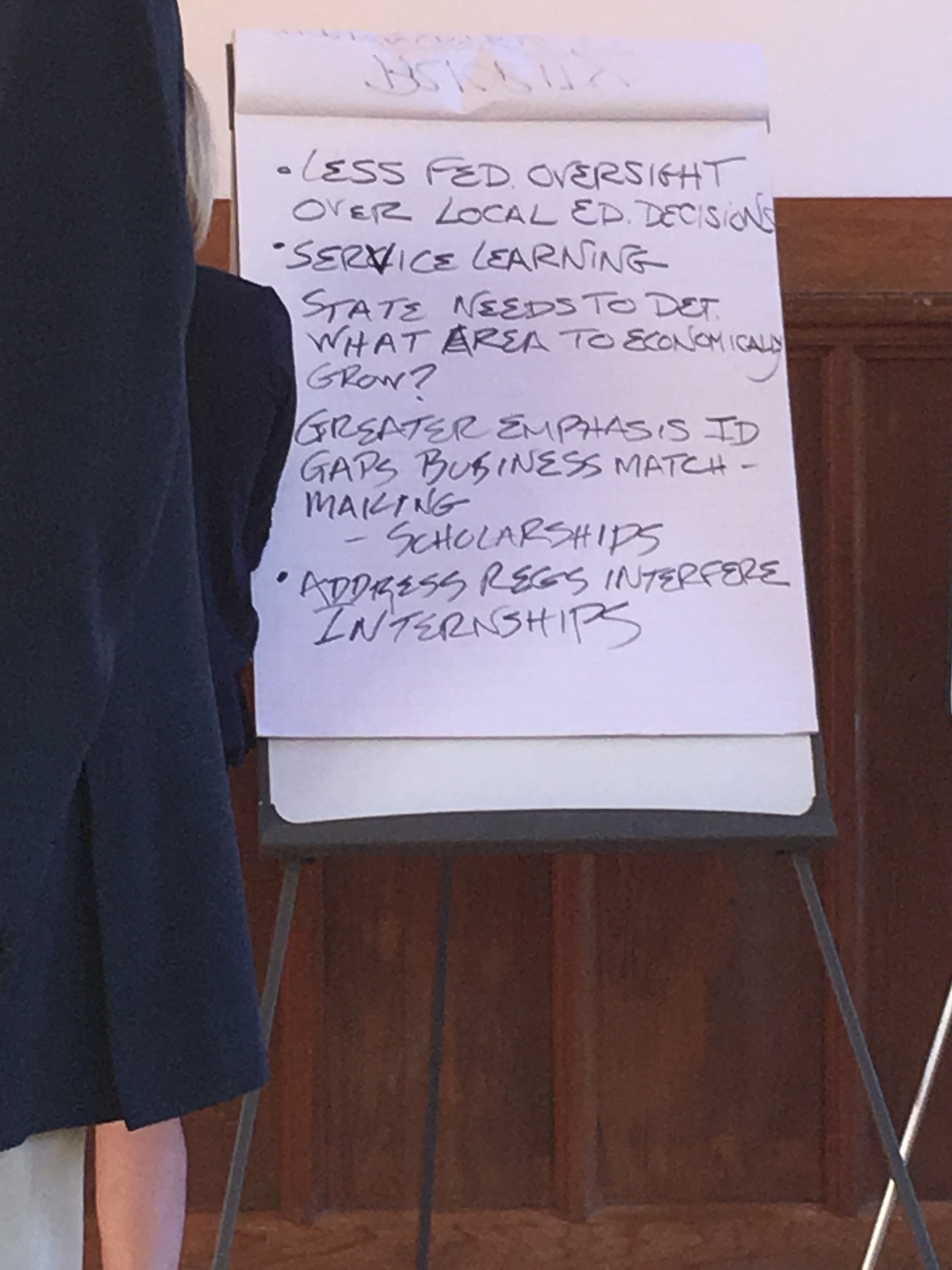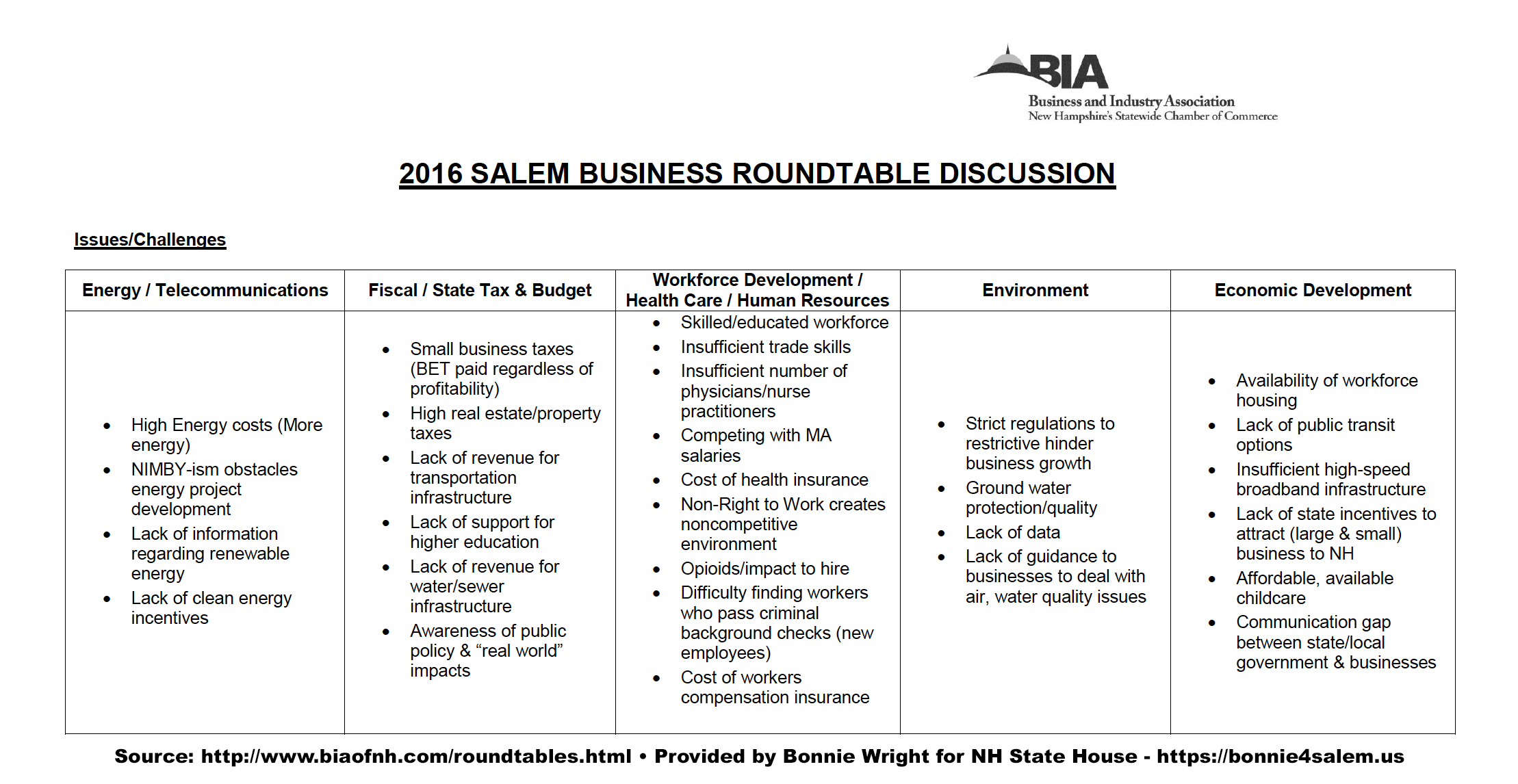
In May, my running mates (Carla Billingham and Sean Lewis) and I had the opportunity to visit with the Greater Salem Chamber of Commerce and BIA (Business and Industry Association). BIA organized Round Table Discussions in nine different locations across the state, to determine what the business community sees as issues for the upcoming legislative session. Key concerns were identified, and action steps were suggested.
Each attendee was given 3 green stickers and one red sticker. A brainstorming session took place, where attendees shared their concerns, which were written on a white board. After brainstorming, each attendee pasted their red sticker on a whiteboard for the issue that was their personal biggest concern, and green stickers on their other top issues. (See photos, at bottom.) Some of the biggest concerns, the key issues with the most stickers, were further explored and developed.
Today I received an email with the summary of these meetings. Some issues and challenges identified by attendees in other regions matched ours, but not all.
Click here to view a compilation of the minutes. (Scroll down for local issues.)
BIA says, “These roundtables are the first step in BIA’s policy development process. Information from these roundtables has been placed in a survey for BIA members to rank which of these are their top business priorities. Currently, BIA’s five policy committees are working with staff to analyze the results to formulate policy positions and action steps for the next legislative session. These recommendations will be presented to the BIA board of directors for review.”
In other words, this is the first step for BIA to figure out what bills they might want to have introduced in the NH House to satisfy the concerns of NH businesses.
Key issues identified by business owners/managers in the Greater Salem area were:
Inadequate Quality Workforce
- Improved communications between business & education community
- Change perception of trade/vocational careers (w/ school guidance counselors)
- Better data on how the economy is changing
- Personalized learning (real world experience)
- Less federal oversight/interference over local education decisions
- Service learning
- State needs to determine what area to economically grow
- Greater emphasis on identifying gaps (business match making)
- More scholarships
- Address regulations that interfere with internships
General economic public policy
- Support funding for Affordable Housing Fund
- Define “affordable housing”
- Increase funding for public transportation options
- Tax credits for employer housing subsidies
- Increased state funding for infrastructure for different types of housing
- Increased business advocacy at the local level (for housing)
- Recognize transportation as “multi–modal”
- Support for walkable/bike-able communities
High cost of energy
- Look at what other states are doing to decrease energy costs
- Increase sources of alternate energy; more energy infrastructure
- Focus on long term solutions
- More state oversight on energy project siting and development
Concerns identified in other regions can be found at:
http://www.biaofnh.com/roundtables.html
Theses are the Salem boards.
